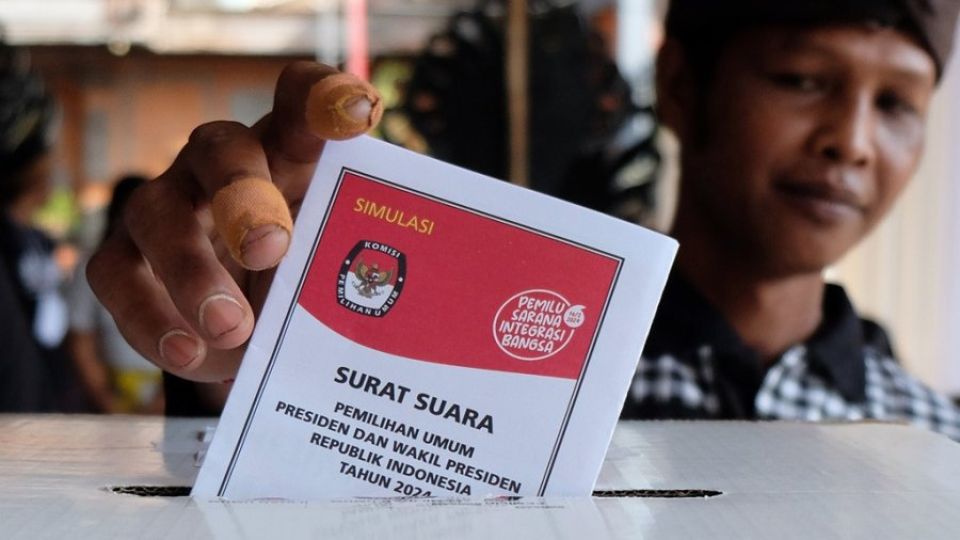February 7, 2024
JAKARTA – Warning that the overseas balloting process is vulnerable to disruptions and foul play, the Elections Supervisory Agency (Bawaslu) has been intensifying its communication with its representatives and poll organizers abroad to anticipate any irregularities that may distort the election outcome.
The series of balloting in polling stations overseas started this week, with Indonesians residing in Hanoi and Ho Chi Minh City being the first to cast their vote on Monday. Polling stations in 126 other cities across the globe will open for a day from Tuesday to Feb. 14, the day voters in Indonesia will cast their ballots.
Yet reports of alleged duplicate names on the voter roll in Johor Bahru, Malaysia, remain unresolved to date, while recent weeks have seen glitches ranging from unwarranted early distribution of ballots to sudden changes in balloting methods.
On Monday, Bawaslu commissioner Herwyn Malonda said his office had identified potential disruptions, including potential mismatches between the number of ballot papers available and the number of voters, broken ballot papers and potential glitches when poll workers verified the identities of voters who opted for mail balloting.
Fearing potential foul play or electoral fraud that could stem from such a disruption, Bawaslu has been informing overseas Election Supervisory Committees (Panwaslu) to pay extra attention to these issues.
“Countries that are most vulnerable are those with larger Indonesian populations and with past records of violations,” Herwyn added. “So we have been focusing more on these countries. […] We have instructed the Panwaslu there to start doing preventive measures.”
Some of the countries and cities in question include Malaysia, Pakistan, Qatar, Afghanistan and Melbourne in Australia.
Read also: KPU in hot water over overseas voting confusion
More than 1.7 million voters across 128 cities overseas are registered to vote in the 2024 presidential and legislative elections either by going to polling stations, through mobile ballot boxes or by mail.
Each of the three methods has its own set of challenges and vulnerabilities, Herwyn said, adding that Bawaslu had warned all members of overseas election committees to follow procedures that would help minimize the risk of foul play.
The General Elections Commission (KPU) national office chair Hasyim Asy’ari said his office had been instructing all elections committees in the 128 cities abroad to eliminate the risk of violations by providing regular reports on the balloting process and investigating any alleged irregularities throughout the election process.
“If there are any indications of violations, we will stop it administratively and conduct corrections,” Hasyim said.
The KPU has been under fire for its perceived incompetence in handling overseas voting, such as in Taiwan, where the premature distribution of some 62,500 ballot papers rendered these papers invalid, and in New York, the United States, where 374 duplicate names were found in the list of over 11,000 registered voters.
Duplicate names
In another alleged duplication in the Johor Bahru voters list, Bawaslu is still in the initial stages of investigating reports made by labor group Migrant Care that flagged more than 3,200 duplicate names.
Migrant Care is concerned that duplicate names could allow these voters to cast multiple ballots at polling stations, at mobile ballot boxes or by postal vote.
Read also: Bawaslu probes alleged duplication in Johor Bahru voter list
Herwyn said Bawaslu would send its recommendations to the KPU sometime on Tuesday or Wednesday.
Hasyim said the KPU used multiple models of duplication analysis to check each name before releasing voter rolls, but he added that “the thing with analyses is that they can be flawed”.
The KPU, he added, had recently communicated with the Johor Bahru election committee to resolve the issue and found that 29 names, out of the alleged 3,200 duplicate names, had been correctly registered. He said the duplicates would be removed so that each voter could only cast a single vote.
The KPU has recently instructed all overseas election committees to take attendance at polling stations and use photo IDs for voter verification.
Bawaslu’s Herwyn said close coordination between the supervisory agency, the KPU and the Foreign Ministry would continue throughout the election process.
The Foreign Ministry’s inter-institutional relations expert staff, Muhsin Syihab, said the ministry would maintain neutrality and professionalism in facilitating the work of the KPU and helping deliver logistical support for poll organizers overseas.


